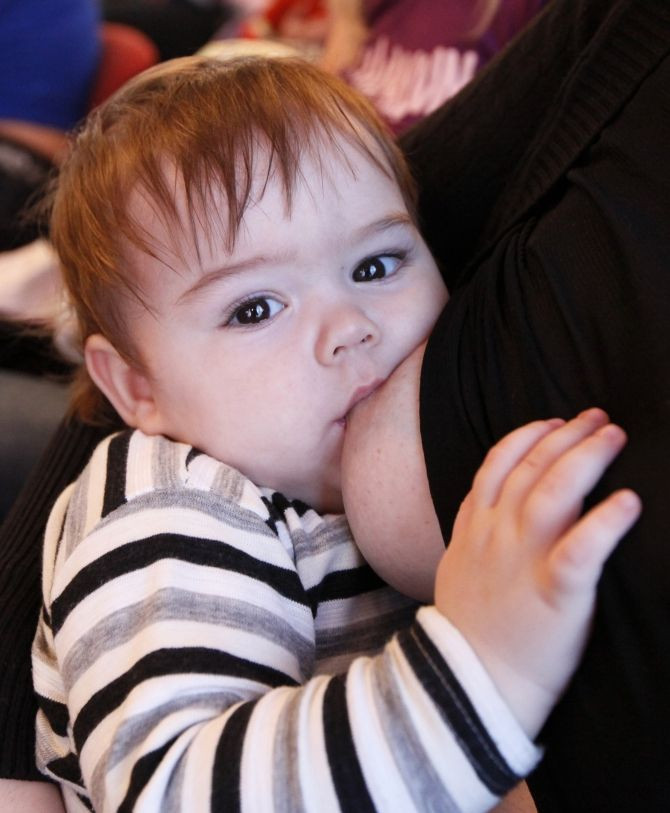Only One-Third of New Moms Meet Their Own Breastfeeding Goals

Two-thirds of mothers don’t stick to their plans of exclusively breastfeeding their children, a new CDC study says.
Researchers say that increased baby-friendly hospital practices might help mothers stay on with the intentions of exclusively breastfeeding their children.
For the study, researchers asked pregnant women in their third trimester about their breastfeeding intentions. More than 85 percent women surveyed said that they'd want to breastfeed their children for at least 3 months.
However, after a year, it was found that only 32 percent of the initial 85 percent women were able to exclusively breastfeed their babies for the desired duration.
"We do know the hospitals have an important role to play. It's certainly a short period of time, but it's a very critical period of time," said Cria Perrine, a CDC epidemiologist and lead author of the study, to Reuters.
The study found that married mothers were more likely to reach the goal of breastfeeding for the desired number of months. Women who were obese, smoked or intended to breastfeed for longer duration were less likely to breastfeed for the intended duration. Restrictions of supplemented feeding and pacifiers also helped new mums stick to their goals.
A study published in 2006 says that avoiding pacifiers for 10 weeks, improved maternity leave, flexible working conditions can help women exclusively breastfeed their infants.
"It's alarming that 40 percent of healthy babies whose mothers wanted to exclusively breastfeed were nevertheless given formula in the hospital -- and it underscores the low quality of care that's provided in maternity hospitals in the U.S.," said Dr. Alison Stuebe, an OB-GYN and assistant professor of maternal and child health at the University of North Carolina, to Huffington Post. Stuebe wasn't involved in the present study.
Another study says that exclusive breastfeeding was common up to 4 but not 6 months of age.
World Health Organization recommends exclusive breastfeeding for at least 6 months, with continued breastfeeding along with complementary food along for 2 years or beyond.
The study is published in the journal Pediatrics.



























